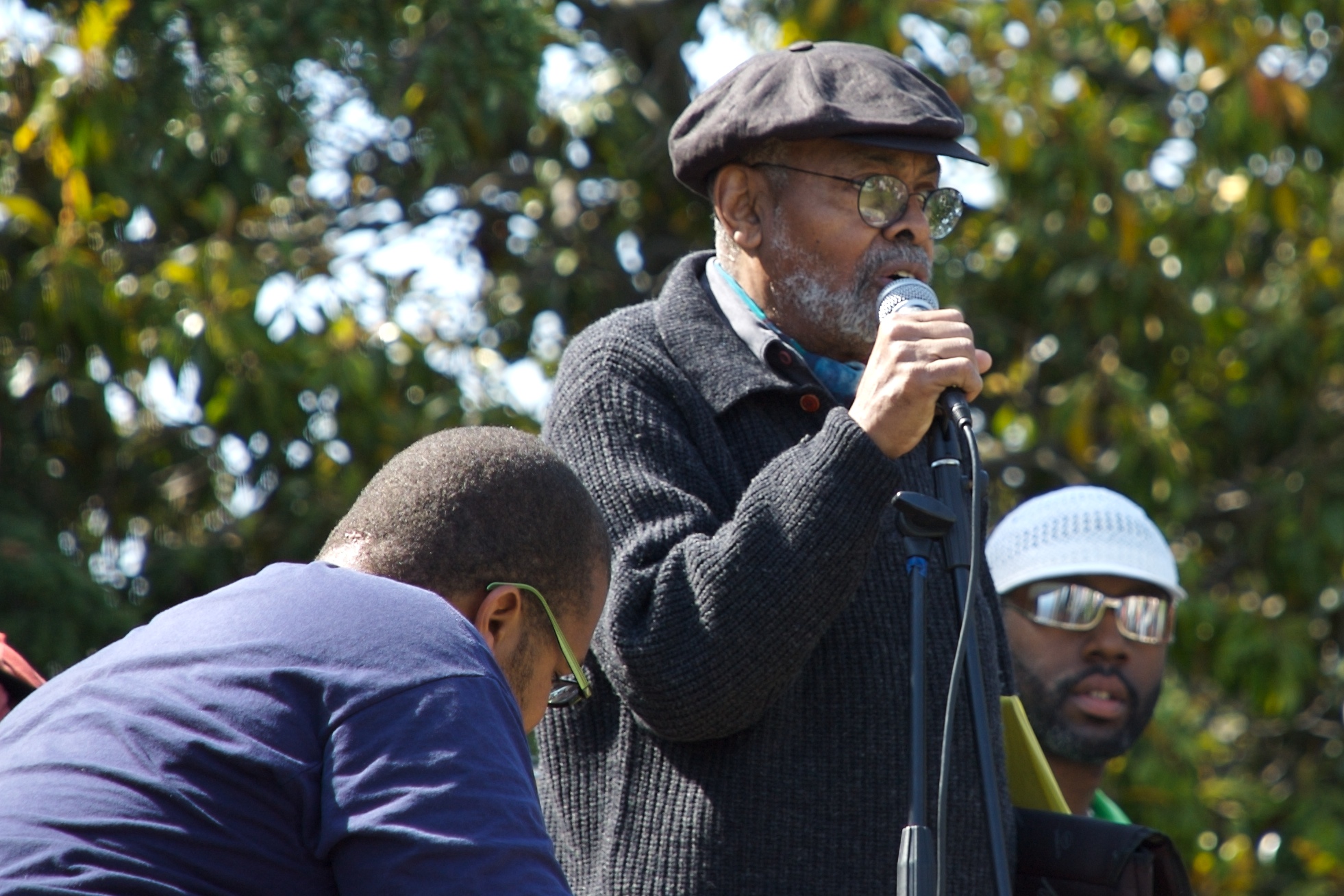|
Congress Of Afrikan People
The Congress of Afrikan people (CAP) was a proponent of black nationalism. Active in the 1970s, CAP's ideology was set around Maoist theory and practice. Its activities illustrate fluidity and changing nature of black radicalism in this period. It later became the Revolutionary Communist League (Marxist-Leninist-Mao Tse-tung Thought), led by Amiri Baraka, which merged into the League of Revolutionary Struggle (Marxist-Leninist). When this group split, some of the members went into Freedom Road Socialist Organization The Freedom Road Socialist Organization (FRSO) is a Marxist–Leninist organization in the United States. It formed in 1985 amid the collapse of the Maoist-oriented New Communist movement that emerged in the 1970s. The FRSO's component groups .... References External links Congress of African Peoples International organizations based in Africa {{africa-party-stub ... [...More Info...] [...Related Items...] OR: [Wikipedia] [Google] [Baidu] |
Black Nationalism
Black nationalism is a type of racial nationalism or pan-nationalism which espouses the belief that black people are a race, and which seeks to develop and maintain a black racial and national identity. Black nationalist activism revolves around the social, political, and economic empowerment of black communities and people, especially to resist their assimilation into white culture (through integration or otherwise), and maintain a distinct black identity. Black nationalists often promote black separatism, which posits that black people should form territorially separate nation-states. Without achieving this goal, some black separatists employ a "nation within a nation" approach, advocating for various degrees of localized separation. Pan-African black nationalists variously advocate for continental African unity (aiming to eventually transition away from racial nationalism) or cultural unity among the African diaspora, which entails either a return to Africa or a sustaine ... [...More Info...] [...Related Items...] OR: [Wikipedia] [Google] [Baidu] |
Maoist
Maoism, officially called Mao Zedong Thought by the Chinese Communist Party, is a variety of Marxism–Leninism that Mao Zedong developed to realise a socialist revolution in the agricultural, pre-industrial society of the Republic of China and later the People's Republic of China. The philosophical difference between Maoism and traditional Marxism–Leninism is that the peasantry is the revolutionary vanguard in pre-industrial societies rather than the proletariat. This updating and adaptation of Marxism–Leninism to Chinese conditions in which revolutionary praxis is primary and ideological orthodoxy is secondary represents urban Marxism–Leninism adapted to pre-industrial China. Later theoreticians expanded on the idea that Mao had adapted Marxism–Leninism to Chinese conditions, arguing that he had in fact updated it fundamentally, and that Maoism could be applied universally throughout the world. This ideology is often referred to as Marxism–Leninism–Maoism to ... [...More Info...] [...Related Items...] OR: [Wikipedia] [Google] [Baidu] |
Amiri Baraka
Amiri Baraka (born Everett Leroy Jones; October 7, 1934 – January 9, 2014), previously known as LeRoi Jones and Imamu Amear Baraka, was an American writer of poetry, drama, fiction, essays and music criticism. He was the author of numerous books of poetry and taught at several universities, including the University at Buffalo and Stony Brook University. He received the PEN/Beyond Margins Award in 2008 for ''Tales of the Out and the Gone''. Baraka's plays, poetry, and essays have been described by scholars as constituting defining texts for African-American culture. Baraka's career spanned nearly 52 years, and his themes range from black liberation to white racism. His notable poems include "The Music: Reflection on Jazz and Blues", "The Book of Monk", and "New Music, New Poetry", works that draw on topics from the worlds of society, music, and literature. Baraka's poetry and writing have attracted both high praise and condemnation. In the African-American community, some com ... [...More Info...] [...Related Items...] OR: [Wikipedia] [Google] [Baidu] |
League Of Revolutionary Struggle (Marxist-Leninist)
League or The League may refer to: Arts and entertainment * ''Leagues'' (band), an American rock band * ''The League'', an American sitcom broadcast on FX and FXX about fantasy football Sports * Sports league * Rugby league, full contact football code, often referred to as just "league" Other uses * League (unit), traditional unit of length of three miles or an hour's walk * League (non-profit), a program for service learning * The League (app) The League is a social and dating mobile application launched in 2015 and available in several cities all over the world on iOS and Android. History The League App was founded in 2014 by Amanda Bradford, who also serves as its CEO.Georgia Well ..., a dating app See also * * * * {{disambiguation ... [...More Info...] [...Related Items...] OR: [Wikipedia] [Google] [Baidu] |
Freedom Road Socialist Organization
The Freedom Road Socialist Organization (FRSO) is a Marxist–Leninist organization in the United States. It formed in 1985 amid the collapse of the Maoist-oriented New Communist movement that emerged in the 1970s. The FRSO's component groups generally identified ultraleftism as the U.S. New Communist movement's main error. Merging under the FRSO banner, some of these groups hoped to consolidate the movement's remnants in a single organization and move beyond the sectarianism that marked the previous decade. The FRSO was founded out of a merger between the Proletarian Unity League and the Revolutionary Workers Headquarters in 1985. It then fused with the Organization for Revolutionary Unity in 1986. It later absorbed other groups, including the Amílcar Cabral-Paul Robeson Collective in 1988 and the Socialist Organizing Network in 1994. Ideology The FRSO considers Karl Marx, Friedrich Engels, Vladimir Lenin, Joseph Stalin, and Mao Zedong the principal theorists of Marxism– ... [...More Info...] [...Related Items...] OR: [Wikipedia] [Google] [Baidu] |


